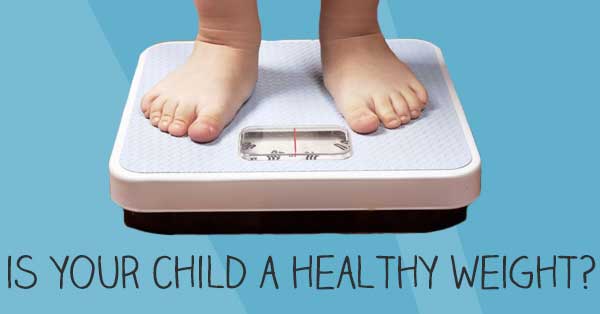Being overweight poses a number of cardiovascular and other health issues – that’s why, regardless of age, weight loss is among the most common health goals patients seek. However, the groundwork to a healthy weight starts before adulthood.
Researchers have long known that overweight teens are more likely to remain overweight as an adult. Parents can play an essential role in helping children maintain a healthy weight throughout their youth and set them up with the foundation for a healthy adulthood.
How do I know if my child has a healthy weight?
If you have been attending annual well-child visits with your child, your provider has likely kept you in the loop on your child’s weight.
Commonly the classification for “overweight/underweight/healthy weight” is determined by your BMI (body mass index). You can calculate this using the CDC calculator. For youth under the age of 20, BMI is referenced in percentiles with 5 to 85 being healthy, 85 to 95 is overweight, and 95 or greater is obese.
How can I help my child develop a healthy weight?
The eating habits children develop in their youth are often carried forward into adulthood. By eating vegetables, fruits, and whole-grains with your children, you can encourage healthy eating and develop positive habits.
Too much screen time and a lack of sleep are other common issues that can lead to children’s weight gain and may need to be monitored. These issues often go hand in hand with a lack of physical activity.
Healthy eating and limited consumption of sugary products are key, however, children should not consume a “weight reduction” diet without the advice of a medical professional. Special “diet” food should be avoided by children as the products you commonly see of this fashion are intended for adult consumption.
Potential problems with the current BMI system
As we mentioned above, the common recommendations are that a safe weight is between the 5 and 85 percentile. However, the risk of cardiovascular disease starts to develop over the 50th percentile.
This means those in the 50 to 85 percentile really do not have as safe of weight as parents may believe. The good news is those falling into the high range of what is deemed the “healthy” weight is they’re already on track to move towards the lower risks that come with being under the 50 percentile.
If you’re concerned about your child’s weight, speak to a medical professional or schedule a well-child visit!

